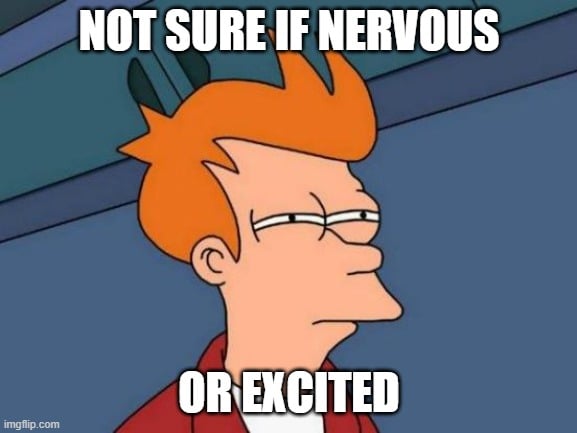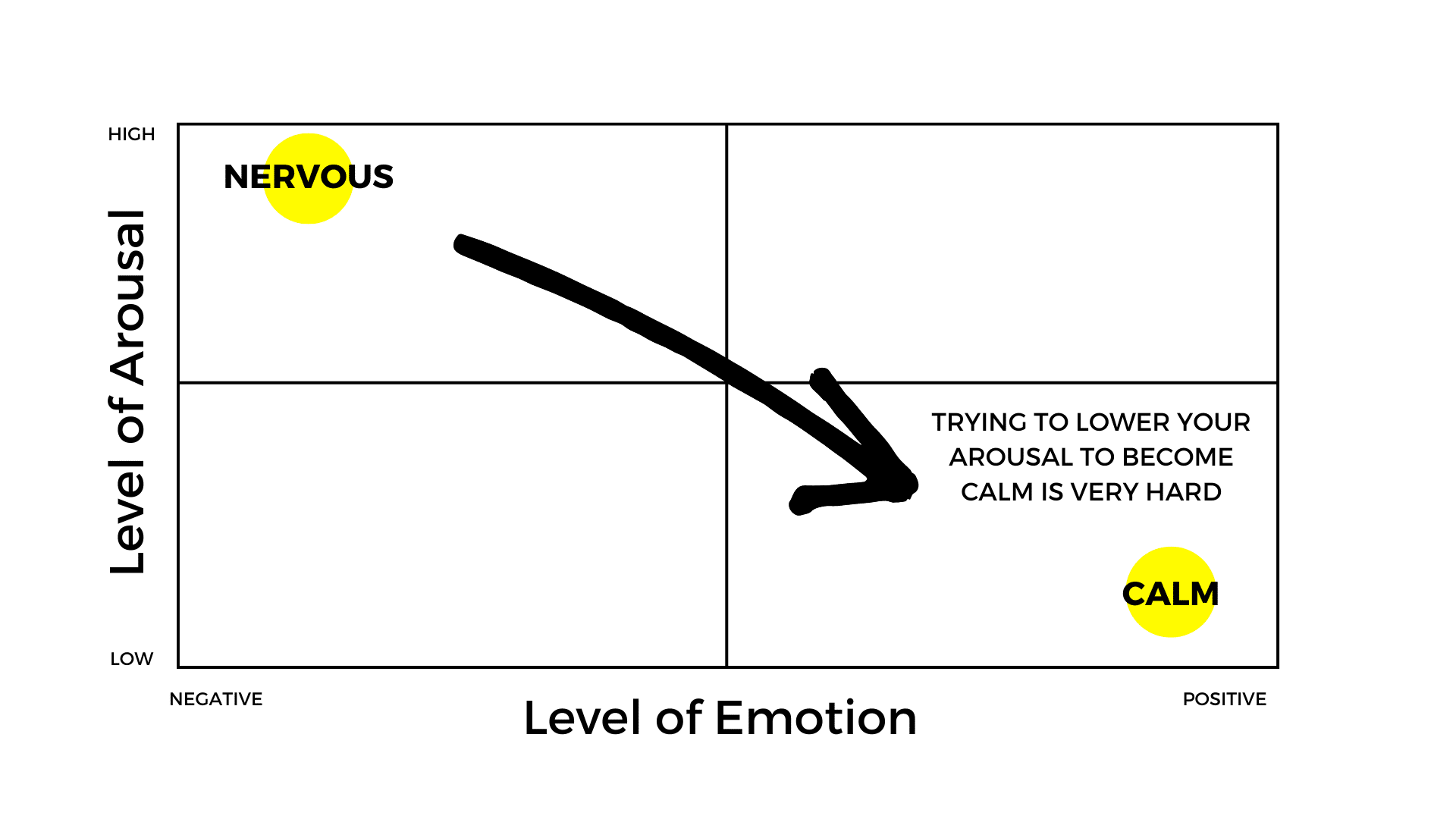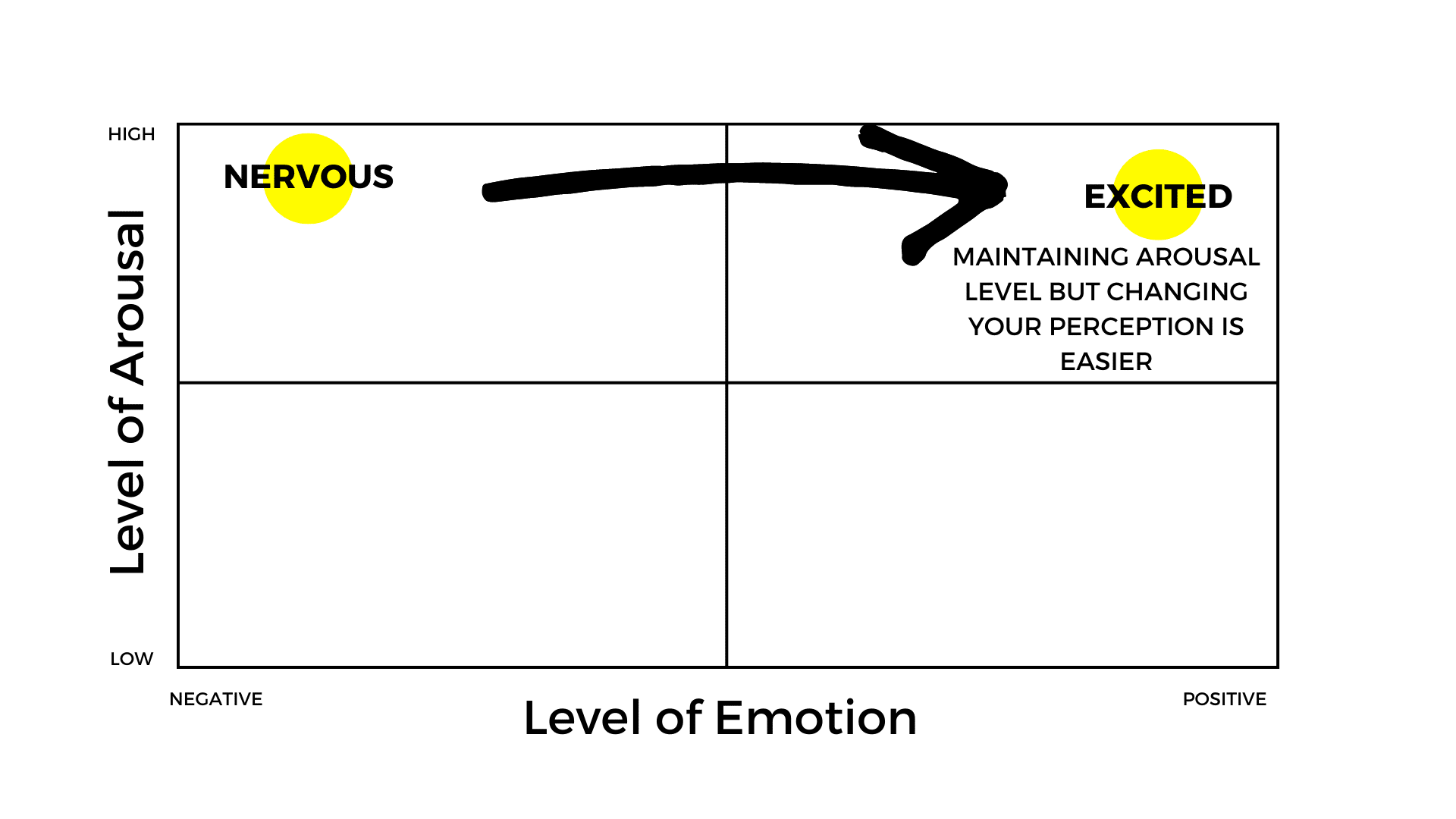If you want to more public speaking confidence, the first thing you need to do is top trying to be calm. The secret to being more confident on stage IS NOT to get rid of your nerves.
Have you ever seen an athlete being interviewed after competing in the olympics.
“Were you nervous out there?” The answer is almost always “No, I was just excited”.
This subtle change in perception has been shown to be incredibly effective at improving your performance in high stress situations.
Perception changes your performance
One Harvard Business School study asked college students to deliver a prepared speech in front of a live panel. Just an average sample of students with none more prone to anxiety to others. Before the speech, the participants were put into three different groups and given different instructions:
Group 1: Before the speech, think about how nervous you are.
Group 2: Before the speech, think about how you’re excited you are.
Group 3: Do whatever you want.
A lot of us naturally fall into the first group before we have to speak in front of people. When we feel the sweaty palms and tightening of the vocal chords, we start to think about how nervous we are. (In the worst cases, this turns into catastrophising: “everyone is going to hear my shaking voice!”)
However, perhaps predictably, the most successful group in this study was the second group who told themselves, “I’m excited” just before speaking.
When judged by panels, these people were thought to have performed better in their speeches. The speeches were also recorded and shown to a larger group of people and these people rated the speakers in different areas such as confidence. On average, the people who switched their fear into excitement were rated higher than the other groups.
Why Does This Work?
Anxiety and excitement are both aroused emotions.
In both cases, you will get a surge of cortisol and adrenaline as your body prepares for fight or flight. Your heart will beat faster, your palms will become sweaty and your throat will tighten.
The only difference between nervousness and excitement in this situation is your own perception. Excitement is positive emotion‚ focused on all the ways something could go well.
However, calmness is completely different from both nervousness and excitement. Without all that cortisol and adrenaline running through your system, your heart rate is lower and your body is not in an agitated state.
That’s why trying to move from nervous to calm is so difficult. There are just too many chemicals running through your system.
When you switch your mindset from fear to excitement, you take the momentum of these chemicals and turn it into something useful.
What makes the excited state so powerful? Brooks explains that feeling anxious is “associated with a threat mind-set. We’re worried about how things can go wrong in the future.” But when people are feeling excited, they are “focusing on the opportunities, how things can go well and work out in their favor. What we find in this paper is that, by focusing deliberately on the positive potential outcomes, you actually are more likely to achieve them.” The findings are particularly appealing, she adds, because simple self-encouragement can make a dramatic difference.
How to boost your public speaking Confidence
So, the next time you need to do a presentation in front of your class or colleagues take a systematic approach to your mental state.
When you start to feel the nerves building up, take stock of your body:
1. Take three deep breaths – this acts like a reset for your body
2. Take note of the feelings in your body – feel the nervousness in your body and recognise that these feelings are simply the result of chemicals reacting in your system
3. Repeat a mantra – now that you can feel your body getting excited, tell yourself “I’m getting excited, I’m getting excited”
4. Sit-up straight – and remind yourself of the key message for your audience.



